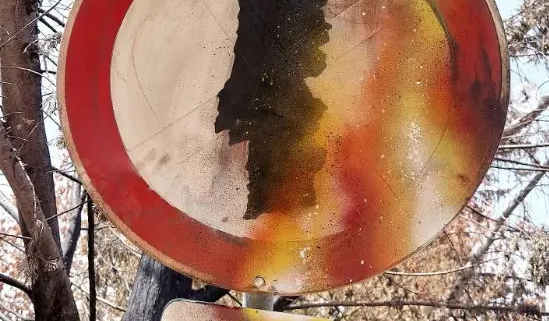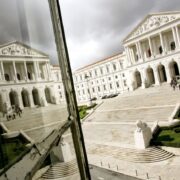Wildfires
‘Why work to see everything burned?’

‘A person is always thinking,’ says António Barroso from Piódão, who doesn’t want to leave the land where fruit trees used to grow around the house. The fire burned everything, but his house was miraculously spared. ‘The house is all I have and the profit of a lifetime. Except that, I’am a little stubborn,’ he adds with a wry smile.

For more than a month, a practically uncontrollable wave of wildfires has so far consumed more than 270,000 hectares (3% of the Portuguese territory) of rural and forest areas; 65,000 of which have been devastated in the enormous fire, that started in Piódão – in the municipality of Arganil (Coimbra district) – now considered to be the largest wildfire ever in the country.

According to the Institute of Nature and Forest Conservation (ICNF), 34,000 hectares (4,6% of the network of protected areas) with special ecological value have already been burned down this year. Most affected are the Serra da Estrella Natural Park (10,7%), followed by Peneda-Gerês National Park (9,2%). and the Douro International Natural Park (8,4%).

A human drama for the populations that have to face the fires without much help. It is also an environmental disaster – pumping out over 37m tonnes of carbon dioxide, nearly as much as the yearly CO2 emissions of the country – and an economic tragedy, with many millions of euros in losses and a lot of biodiversity destroyed.

And again, Pedrógão Grande was not spared – the municipality known for the highest loss of human lives in a single fire in Portugal’s recent history. In 2017, 66 people died, and lots of homes and businesses were destroyed when wildfires devastated the region. Firefighters, residents and landowners are back in a place that haunts the collective psyche.

‘We know that large fires foster larger fires in the future. When the vegetation recovers, it grows simultaneously, and will produce an increasingly homogeneous continuum of vegetation – and if there is one thing fires like, it’s this homogeneity, explains Paulo Fernandes, a fire expert and researcher from the University of Trás-os-Montes.
Although the number of deaths – 4 people so far – cannot be compared to 2017, the burned land across the country is, up to now, the largest in the EU!

A great number of fires is believed to be caused by arsonists. Carlos Farinha, deputy national director of the Polícia Judiciária, stated to SIC Notícias, that time in prison should be increased since most of the detainees this year have already been caught in the past for the same crime.

The centre-right government of Luis Montenegro is criticized for the way it has been dealing with the fires. There seems to be a structural discoordination, both on the ground and in commands at the highest level.
The joint opposition parties have asked for a Parliamentary Commission of Inquiry into the fires and demand that Maria Lúcia Amaral, the Minister of Home Affairs, resigns from her position.
Enjoy your week Aproveite a sua semana (pic Público/Ptnews)









